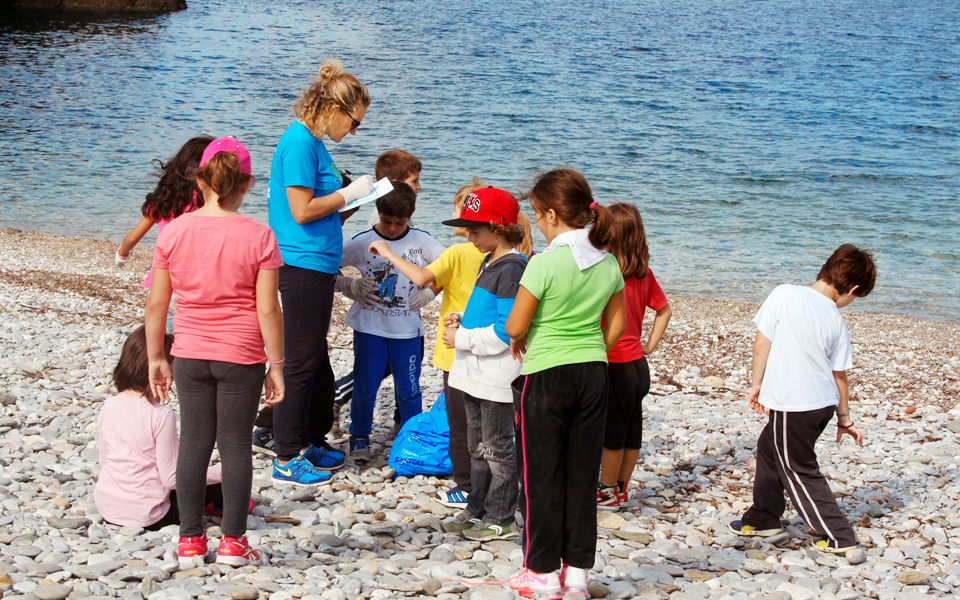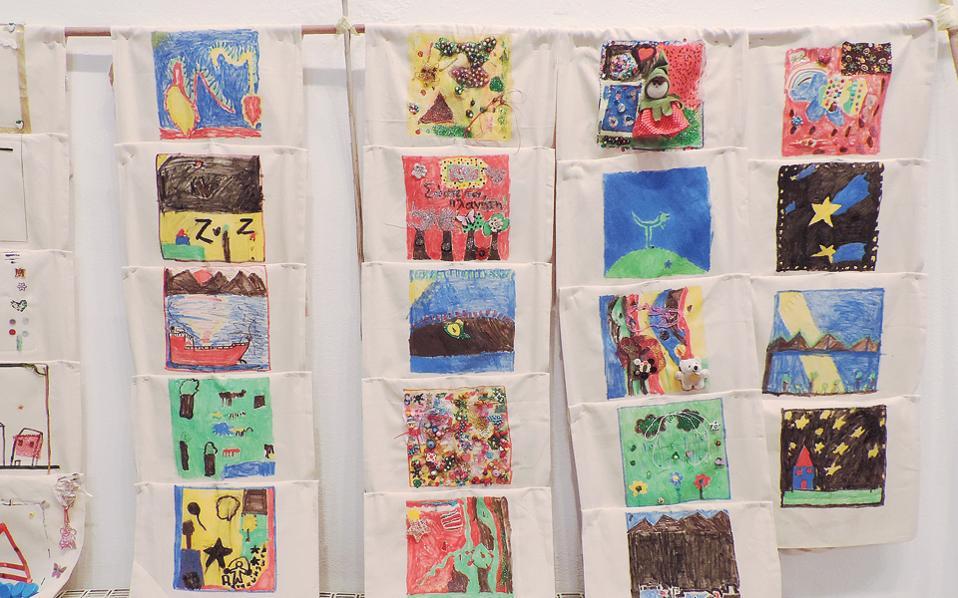“Giving a customer a plastic bag is considered a service,” says Yiannis Gylis, head of the Sifnos Island Cooperative. “We have come to the point that you’ll be asked you if you want a bag when you buy a bottle of water at a kiosk, and a cheese pie at a bakery is first placed in a paper envelope and then in a plastic bag, which, of course, ends up in a garbage can just a few seconds later if it’s not blown away by the wind.”
Gylis is amazed at the irrational daily habits of Greeks in regard to the use of plastic bags, an omnipresent item at every supermarket, shop and street market, in every garbage can at homes, stuffed into drawers and holding clothing in closets – and, of course, in the countryside and the sea where they inevitable end up. According to European Union statistics, Greeks use an average of 242 plastic bags a year.
The EU, however, has been tightening the rules with new regulations calling on member-states to restrict each individual’s use of plastic bags to 90 per year by the end of 2019 and 40 per year by 2025, or to ensure that by the end of 2018, consumers pay for plastic bags when making purchases.
As the Greek state mulls over what to do, there are a few groups that are taking the initiative to launch public awareness campaigns for restricting their use.
On Sifnos, this is what the cooperative is doing.
“One member, who’s from the Netherlands, suggested a few years ago that we take action to restrict the use of plastic bags on the island,” says Gylis. “At first we explored the option of multiple-use plastic bags but rejected the idea for many different reasons. Eventually we decided to buy two sewing machines and to create our own product that would reflect the aesthetic of the island. So we started designing cloth bags and tested them by carrying rocks in them before settling on the final design.” The group put itself to the task of making the bags, with the most skilled among them working the sewing machines. “We made 2,400 bags and thought that no one would buy them. But they sold like hotcakes and now we’ve started making more.” The next step was initiating the community in the new idea of a plastic bag-free life. Members of the Sifnos Island Cooperative spoke at schools and distributed free bags with fun designs to all the students. “The idea was simple,” says Gylis. “We wanted kids to pressure their parents not to use plastic bags on supermarket trips.” Another important step started just recently, with the cooperation of the Association of Sifnos Professionals and Traders and the municipality, with the decision to charge 0.10 euros for plastic bags at stores on the island.
“Gylis is amazed at the irrational daily habits of Greeks in regard to the use of plastic bags an omnipresent item at every supermarket, shop, street market, garbage can and at homes.”

Has everyone agreed to the plan?
“Yes, with the exception of one grocer who believes that he has the advantage when offering plastic bags as everyone else charges for them,” says Gylis. “I think that he’ll eventually come around.” The cooperative has also launched a public informational campaign called “Do it Like a Sifniot.” “It’s all going much smoother than we expected,” says Gylis, explaining that the group plans to start designing and producing “tourvades,” a traditional bag used on the island.
Alonissos is another Greek island that is looking to reduce the amount of plastic waste, and shops there have been charging for plastic bags since December 1. Recently, representatives of the Mediterranean SOS and MOm conservation societies held a weekend of interactive and awareness-raising events for locals with the aim of getting more people to join the effort for a plastic bag-free island.
“It’s going very well. The people and the shopkeepers have adjusted. There are a few stores that don’t use plastic bags at all anymore, while most keep them out of sight and give them – at a charge, of course – only if the customer asks,” says Eleni Tounta, coordinator for the Northern Sporades Island Program of MOm, a nongovernmental organization dedicated to the protection of the endangered Mediterranean monk seal (Monachus monachus). “The island’s hotel and rooms-for-rent owners also had a great idea. They bought cloth bags that they put in their guests’ rooms so they can use them for any shopping they may do during their stay on the island. They can then leave the bag for the next guest or take it home as a souvenir,” says Tounta. “A greengrocer recently told me that he used to need three bundles of plastic bags a week and he now needs less than half a bundle. Isn’t that great?”
What is the next step for Alonissos?
“We have posters in all the shops and soon hope to have them on the ferry boats serving the island to inform visitors. The municipality is working hard to back this initiative, which is constantly evolving,” says Tounta.
Originally published in Kathimerini.com
“Eventually we decided to buy two sewing machines and to create our own product that would reflect the aesthetic of the island.”











